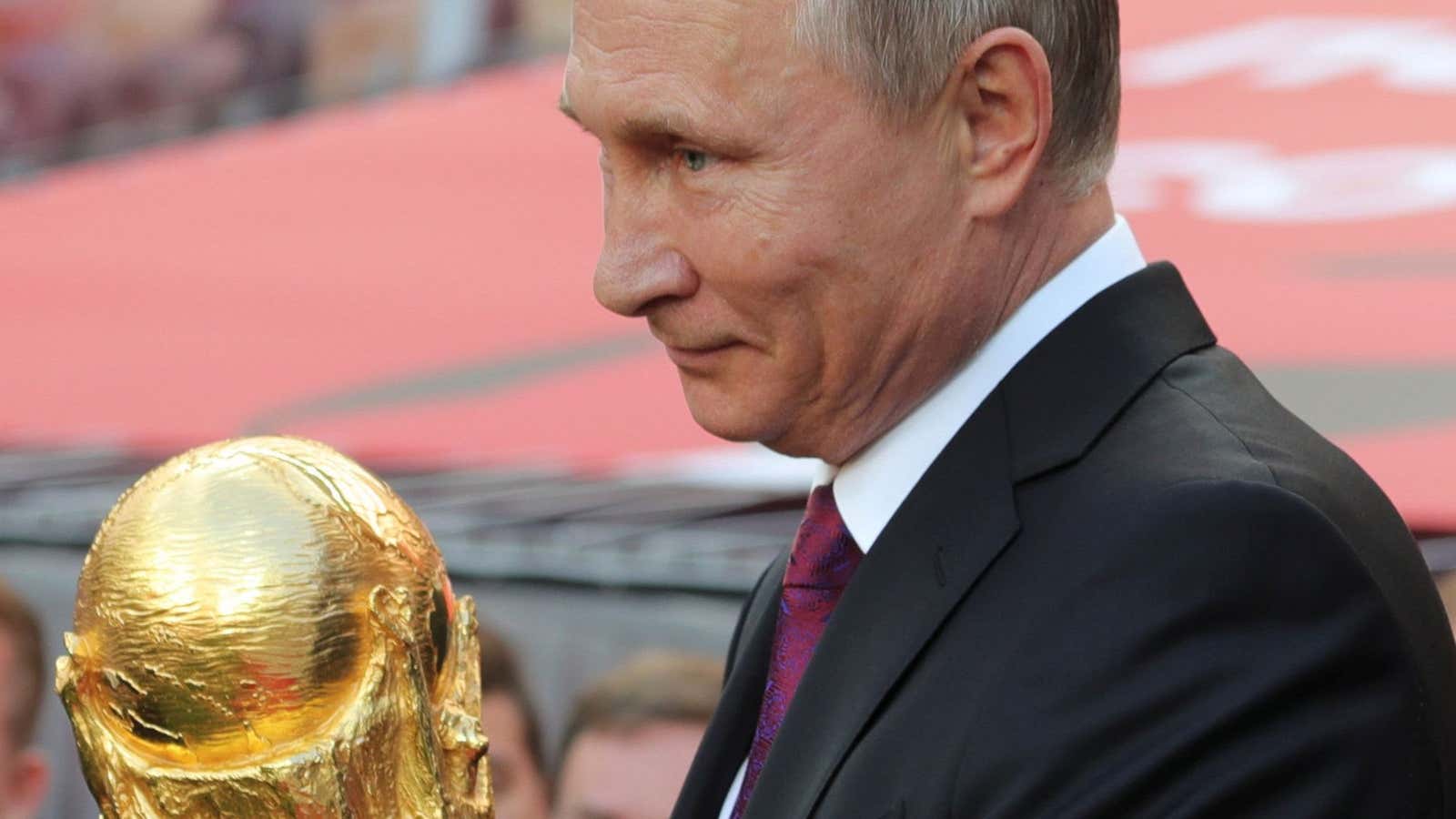Donald Trump continued to defend Russia and defy the US intelligence community today (July 18), saying there’s no evidence Russia continues to meddle in American elections (there is), and promising “great things” coming out of his Helsinki summit with Vladimir Putin.
Trump has long said that it is important that the US normalize relations with Russia, fueling concerns that Putin helped orchestrate his 2016 electoral win. Even without the ongoing investigation into the 2016 election, it would be a jarring position. In recent years, Putin’s administration has suppressed dissent, annexed foreign territory illegally, and is suspected of murdering hundreds of rivals as well as shooting down a Malaysian airlines plane and killing all 298 on board.
Trump may be about to get his wish about normalization—Republicans who said they were outraged by Trump’s conduct in Helsinki this week have failed to force any votes on bills that could curb Trump’s powers to lift sanctions against Russia, or introduce other checks. How normalization would benefit the US is a mystery.
Despite boasting the largest landmass of any country, Russia has a relatively small, unsophisticated economy. In recent years, foreign policy experts have even debated whether Russia even deserved to be called a “world power” any longer because of the size of its economy and how dependent it was on one industry, hydrocarbons. Barack Obama dismissed the country as a “regional power” when Russia invaded Crimea in 2014, one that was “acting out of weakness.’
Russia recently suffered through a multi-year recession so severe people started growing their own tobacco. In 2017, Russia was just the world’s 11th largest economy. It is the US’s 38th-largest trading partner.
Russia’s economy is dwarfed by the European Union ($17.1 trillion in 2017), which Trump recently declared an enemy. Putin has been promising to grow Russia into the world’s fifth-largest economy for years, but has made no progress.
In terms of sheer manpower, Russia’s population is about half the US’s, and is more elderly than any other BRIC countries.
Russia’s spending on defense overall is just a small fraction of the US’s mammoth outlay:
The one area where Russia does surpass the US total nuclear weapons. Russia leads the world in nuclear warheads, ArmsControl estimates:
“He thinks it’s a good thing to get along with the other person who controls that much of the nuclear arsenal across the globe,” White House press secretary Sarah Sanders said today. (Sanders also said Trump was declining to answer questions about ongoing Russian election meddling, not denying its existence, but that interpretation isn’t supported by the video of his remarks).
Confusingly, under Trump, US defense officials have previously recommended a more aggressive, “gloves off” approach to counter the Russian stockpile, and not the appeasement that Trump seems to be pushing.
Helsinki marks the first time Putin has officially met with an American leader since 2012. Just as the US-North Korea summit helped Kim Jong Un just by happening, one of Putin’s biggest wins was getting Trump to sit down with him at all. The fact that Trump emerged from it looking like the weaker party—despite heading a much stronger country—may explain why Russian official are now referring to the summit’s results as “better than super.”
